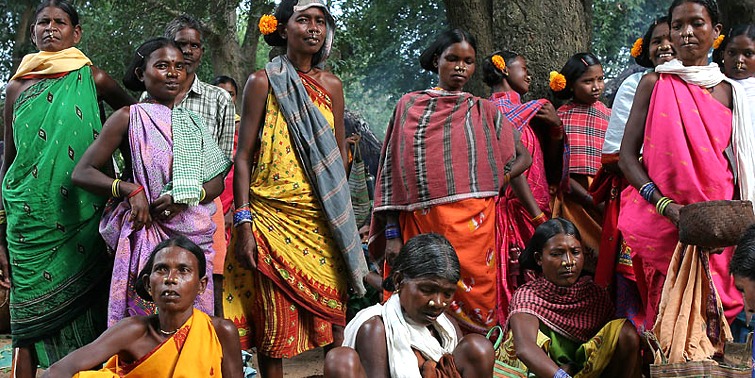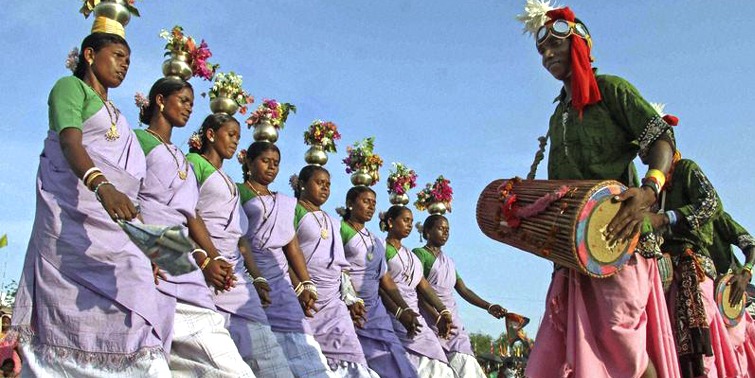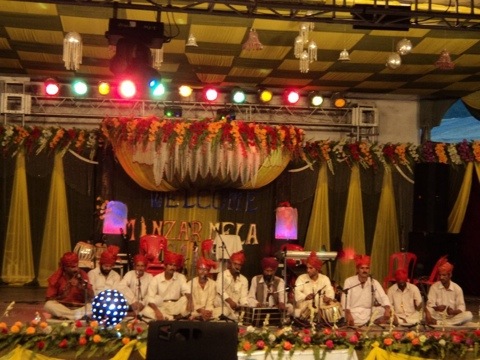
In a remarkable policy pivot, the Bharatiya Janata Party (BJP) has promised to consider implementing the Sarna Code in Jharkhand’s official census—a move that underscores its strategic shift from the ideological narrative promoted by its parent organization, the Rashtriya Swayamsevak Sangh (RSS).
This pledge, announced by Home Minister Amit Shah as part of the BJP’s manifesto for the state, reflects the party’s desire to address tribal identity on its own terms, a strategy that appears to sidestep the RSS’s long-standing position that tribals are, fundamentally, Hindus. With the 2019 state assembly results fresh in memory—where the BJP struggled to win tribal seats—this new approach could be a bid to strengthen the party’s standing among Jharkhand’s tribal communities, who form nearly 26 percent of the population, according to the 2011 census.
What Is the Sarna Code, and Why Does It Matter?
At its core, the Sarna Code is a proposed census category to identify tribal communities who practice indigenous faiths, such as nature worship. “Sarna” refers to sacred groves that serve as spiritual hubs for these communities. This code would allow the country’s census to acknowledge tribal people’s distinct religious identity, separate from the broader Hindu categorization. Indigenous leaders have argued for years that a separate Sarna Code would allow tribals to secure cultural and religious recognition, challenging the notion that their faith aligns with Hinduism.
For the BJP, promising the Sarna Code is a calculated step toward building trust with tribal voters. This could be seen as a pragmatic response to longstanding tribal grievances over the dilution of their distinct cultural practices and beliefs. However, the RSS, which has campaigned for decades in tribal regions, has consistently maintained that tribal people—often referred to as *vanvasis* (forest dwellers)—are integral to Hinduism. The RSS’s vanvasi outreach slogan, “*Tu Main, Ek Rakht*” (You and I have the same blood), symbolizes their emphasis on unity, but it subtly erases the distinct spiritual and cultural identities that the Sarna Code seeks to preserve.
A Calculated Gamble: Is It the Champai Soren Factor?
The BJP’s recent manifesto comes at a time when Champai Soren, a seasoned tribal leader from the Jharkhand Mukti Morcha (JMM), is speculated to be aligned with BJP interests. The timing of this promise raises questions about whether Soren’s influence in the tribal electorate has pushed the BJP to adopt a more flexible stance on the Sarna Code. By courting leaders like Soren, the BJP aims to bolster its appeal in the tribal heartland. However, given the RSS’s foundational belief in a unified Hindu identity, this move appears to be a compromise between political expediency and ideological purity.
BJP’s 2019 Performance: The Tribal Vote Remains Elusive
In the 2019 state assembly elections, the BJP faced a stark reality check. Out of 28 seats reserved for Scheduled Tribes, the BJP managed to secure only 2, whereas the JMM, a party rooted in tribal issues, won 17 of these seats, followed by Congress and smaller regional parties. This result underscored the BJP’s disconnect from tribal voters, especially given the JMM’s ability to resonate with local sentiments on land rights, autonomy, and cultural recognition. The BJP’s recent promise to adopt the Sarna Code signals an awareness of this disconnect, highlighting its desire to repair its image and gain traction among tribal voters.

The RSS’s Consistent Message: “Vanvasis Are Hindus”
For the RSS, tribal communities are an essential part of the Hindu fold, and the organization has been vocal in opposing any move that could drive a wedge between tribal identity and Hindu identity. The RSS’s Vanvasi Kalyan Ashram, which operates across tribal regions in Jharkhand, Chhattisgarh, and Madhya Pradesh, has a consistent mission to integrate tribal communities into the Hindu cultural narrative. The group has repeatedly argued that tribal communities have ancient Hindu roots and that a distinct Sarna Code is both unnecessary and divisive.
Senior RSS leaders have often voiced this position in public addresses, stressing that “the vanvasis are more Hindu than anyone else.” For example, in a 2018 speech in Ranchi, Mohan Bhagwat, the RSS chief, emphasized, “The tribal people of India are a living example of what it means to live in harmony with nature, something that is deeply Hindu.” He continued, “We do not see them as separate; they are us.” This belief underscores the organization’s opposition to the Sarna Code, as it would formalize a separation between tribal identities and the Hindu identity the RSS champions.
Political Pragmatism or a Shift in Ideology?
The BJP’s Sarna Code promise can be seen as an example of how the party is willing to be ideologically flexible to secure electoral gains. The question, then, is whether this is a calculated move solely for political advantage or if it signals a deeper shift in the party’s stance on indigenous identity. By endorsing the Sarna Code, the BJP implicitly acknowledges that tribal communities see themselves as distinct from Hinduism—a view that challenges the RSS’s pan-Hindu vision. For the BJP, this move may be a pragmatic step to win votes, but it risks straining its ideological ties with the RSS, whose members may perceive the Sarna Code as a concession to “secularist” demands.
Looking Ahead: The Future of Tribal Identity in India
In Jharkhand, the BJP’s Sarna Code promise could resonate among tribal voters, giving them a sense of political recognition and cultural respect that they have long sought. If implemented, the code could open the door to greater autonomy and tailored policies for indigenous communities, setting a precedent for how the state approaches tribal identity across India.
However, this promise also raises critical questions about the BJP’s long-term ideological direction. By prioritizing tribal self-identification over the RSS’s agenda, the BJP may be laying the groundwork for future divergences with its ideological allies. Ultimately, the Sarna Code debate illustrates a larger tension within Indian politics: the balance between national integration and cultural pluralism. For Jharkhand’s tribal communities, this moment could be one of validation—if the BJP follows through on its promise.
As the BJP charts its own path on tribal identity, it may win over Jharkhand’s voters, but it will likely leave the RSS asking hard questions about where it stands in India’s evolving identity landscape.

Saurabh Chauhan, an independent journalist, has over 15 years of experience in Print and Digital Media. He has extensively written on a variety of issues including women’s rights, environment, crime, governance, finance and politics at Shimla, Chandigarh and Lucknow. Saurabh currently divides his time between Shimla and his native place in Kotgarh (Shimla Hills).



